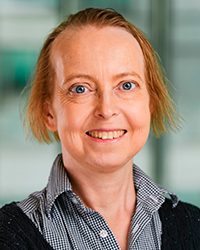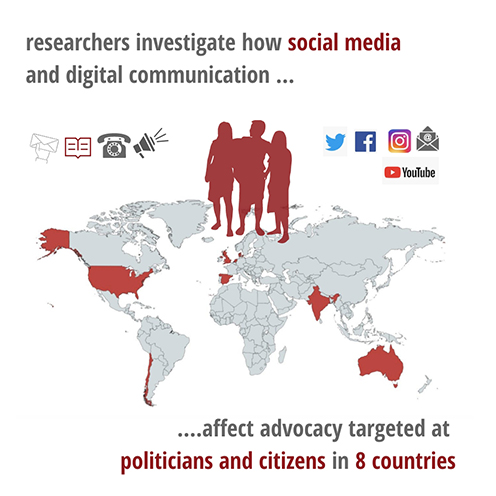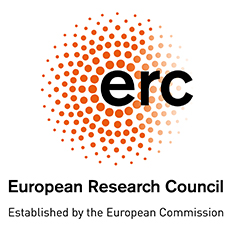Mapping the digital impact of interest groups on politicians and the public
Professor of Political Science Anne Rasmussen is set to receive a DKK 15 million ERC Consolidator Grant to study how interest groups’ use of digital forms of communication (e.g. tweets, YouTube videos, Facebook posts and e-mails) changes political discussions and what impact they have on democracy, in eight different countries. It is the first ERC Consolidator grant to a female political scientist working in Denmark.

Professor of Political Science Anne Rasmussen is set to receive a DKK 15 million ERC Consolidator Grant to study how interest groups’ use of digital forms of communication (e.g. tweets, YouTube videos Facebook posts and e-mails) changes political discussions and what impact they have on democracy, in eight different countries. It is the first ERC Consolidator grant to a female political scientist working in Denmark.
In recent decades, digital technologies have fundamentally changed the way companies and interest groups seek to exert influence on public debate and political decision-making. However, we still know very little about how this digital transformation of political campaigning affects and changes democracy – e.g. which types of stakeholders are the winners and losers in this new digital reality.
Over the next five years, Rasmussen will map how the digital communication methods used by interest groups change the political landscape. Her research project – called ADVODID - will analyse data from websites and social media, etc. as well as newspaper articles and interviews with 400 selected interest groups, in order to explore how digital political campaigns and strategies differ from the approaches adopted by the same organisations offline.
Digital campaigning in eight different countries
With her new research team, Rasmussen will examine links between the political agendas pursued by interest groups, the public, and politicians online in Australia, Chile, Denmark, India, the Netherlands, Spain, the UK and the USA. The project will also identify and analyse the use of various on- and offline campaigning tools in connection with a wide range of political issues, such as working hours, green taxes and maternity/paternity rules.
'I want to study what it means for interest groups’ ability to set and influence the outcome of the political agenda when they not only meet face-to-face with politicians and citizens but also use social media, e.g. Facebook and YouTube, to communicate with them more and more. We will also look at the impact of the use of digital technologies on democracy and society – in other words, the nature of the political discussion between citizens, organisations and politicians.'
Working with actual interest groups, the research team will also conduct field experiments in two of the eight countries. The aim is to examine whether and how their political campaigns influence attitudes among politicians and the public, e.g. by measuring whether people change their views on various political issues after receiving various, online and/or offline campaign messages.

Before the advent of the internet, interest groups mainly relied on traditional news media, written communications and face-to-face meetings with politicians. Today, political campaigning also entails large-scale online activity, e.g. on social media. Over the next five years, Professor of Political Science Anne Rasmussen will map how digital campaigning is changing the political landscape.
In the design of the project, it was absolutely crucial to cover a wider range of countries than is usually the case in studies of this nature. In particular, Rasmussen highlights the choice of India as unique.
'It is undoubtedly more demanding to collect data in India, but it will give us a unique opportunity to study digital campaigning in a part of the world where it might make the biggest difference in the future. While the percentage of people with access to the internet is lower than in many of the other countries, India has the second highest number of individual internet users worldwide, and the use of internet-enabled smartphones in both urban and rural districts has been increasing massively,' she says.
Nina Græger, head of the Department of Political Science at the University of Copenhagen, is pleased with this major new research project.
'It’s a feather in the cap for both Anne and the department. This is an innovative project that deals with an increasingly important subject – the digitisation of our everyday lives. The ability of interest groups to influence the attitudes and behaviour of citizens and politicians plays a major role in democracies, and so it is a key area of research in political science. This project will generate new knowledge of how this influence is exerted, both online and in classic forms. It can help make the whole democratic process more transparent,' she says.
'I hope that the large datasets generated by ADVODID will help us understand how modern forms of campaigning affect the electorate, politicians and the whole democratic system. For example, if it is good for democracy because digital communication creates a level playing field for political interests and agendas to attract attention, or if precisely the opposite is the case in reality,' says Anne Rasmussen.
Topics
Related News
Contact
Professor Anne Rasmussen
Department of Political Science
Mail: ar@ifs.ku.dk
Phone: 50 45 10 35
Journalist Janni Brixen
Faculty of Social Sciences
Mail: jab@samf.ku.dk
Phone: 93 56 52 57
ADVODID
- Research project analysing the use, impact and democratic consequences of digital campaigning in eight countries.
- The project will run from 2020 to 2024.
- The research group includes four researchers and assistants.
ERC Consolidator Grants

- are grants from the European Research Council (ERC) aimed at researchers who are mid-career and have demonstrated excellence in their field of research.
- 2,453 researchers from all over the world applied for an ERC Consolidator Grant in 2019.
- In total, 301 researchers received grants worth in total €600 million.
